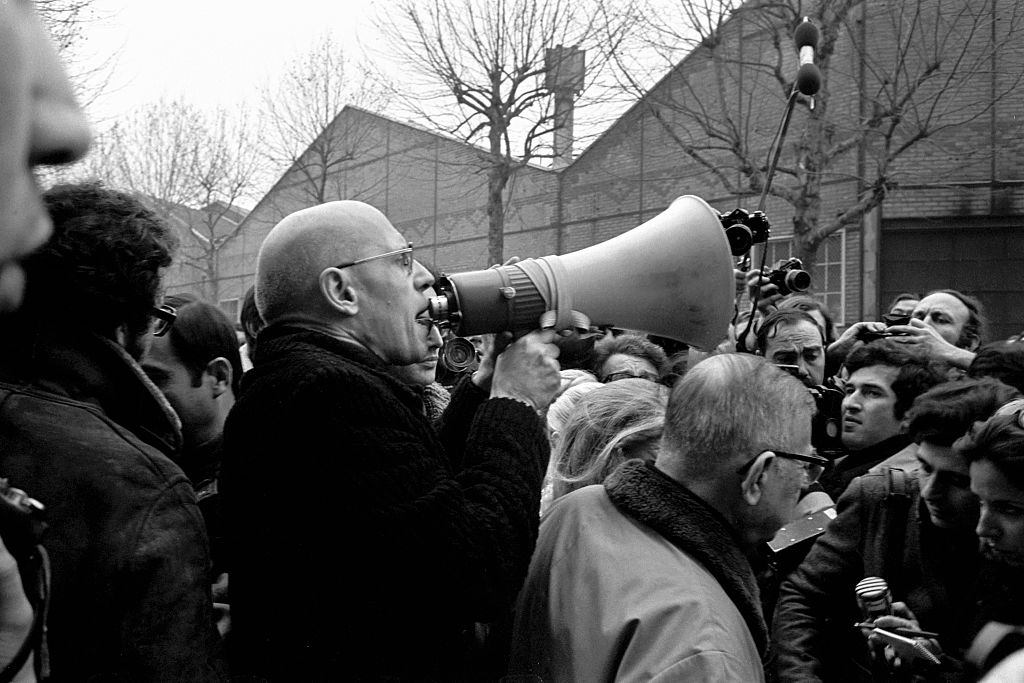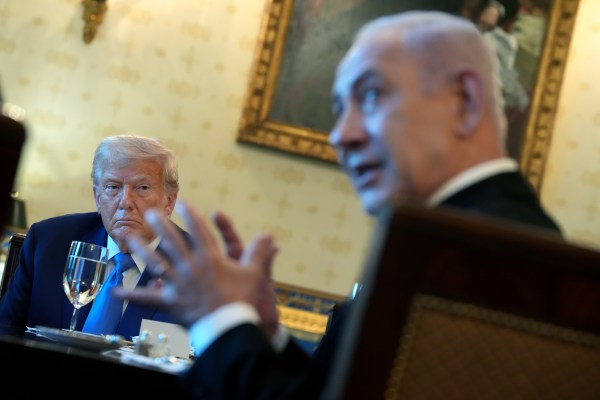In 1906, Yale University professor William Graham Sumner published one of his most important works. Hailed as a pioneer of sociology and anthropology, Sumner developed in his book Folkways the idea of ethnocentrism, which he defined as “a view of things in which one’s own group is the center of everything.”
An estimated 1.1 million immigrants from Europe, Asia, and Latin America entered the United States that year—the highest number since the country’s founding. Against the background of mass migration and cultural cross-pollination, Sumner argued that each culture effectively constructed its own unique system of morality. “The ‘morals’ of an age,” he wrote, “are never anything but the consequences between what is done and what the mores of the age require.” Sumner added that any attempt to discern “an absolute philosophy of truth and right, based on an unalterable principle, is a delusion.”
As the 20th century wore on, what started as an academic concept to make sense of cultural difference—the idea that morality was culturally conditioned, and infinitely changeable—came to underpin a host of other critical theories gaining traction in universities and intellectual circles. The rise of postmodernist theory and the so-called “cultural turn” of the 1970s emphasized the inherent instability of language, meaning, and ideas. For theorists like Jacques Derrida and Michel Foucault, making sense of overarching Western assumptions required “deconstructing” them—breaking down their multiple, slippery meanings and constantly challenging their value. Arriving at meaning or belief becomes a constant process of deconstruction and analysis. Everything is up for grabs in the culture of critique.
To open a newspaper—or better yet, TikToK—in the year 2023 is to witness what happens when playful intellectual theories about the relativity of morals escape the seminar room and, through a baffling process that no one can quite understand, permeate a significant portion of left-leaning culture.
As scores of young TikTok users deconstructed Osama bin Laden’s “Letter to America” last week, it became clear that the view that morality depends entirely on context, grievance, class, race, and religion is alive and well.
“I will never look at this country the same,” said one young woman, after reading the missive, in which bin Laden condemns the U.S. for failing to instate Sharia law and justifies killing American civilians because their tax dollars fund the U.S. government’s support of Israel. “In the last 20 minutes, my entire viewpoint on the entire life I have believed and I have lived, has changed. Please read that entire letter,” she implored.
We can hope that only a few individuals were so moved by the vitriolic declarations of a mass killer who loathed every principle upon which freedom and democracy were built. But take this small-scale phenomenon along with other recent examples—of feminist organizations refusing to acknowledge that Israeli women were brutally raped because they are “colonizers,” or students calling for a “global intifada”—and it becomes clear that a pernicious new morality is at work.
A world in which ideas are unstable and objective right or wrong don’t exist (replaced by mere different “points of view”) is a world that allows those perceived as powerless to use violence against those critiqued as powerful. Clear calls for the destruction of the West are understood as the desperate cries of disenfranchised victims. And symbols of slaughter and rape wrought upon the young—Hamas’ paragliders—are really just clever optical illusions: If you squint hard enough, apparently, they become symbols of liberation and hope.
Too many in the West have heeded this call to relativism, leading us into a culture almost entirely devoid of the “unalterable principles” that Sumner regarded as delusional. We become a society where critique is more acceptable than assertion.
The problem is that most of the enemies of Western liberalism—the ones being celebrated by many on the left, influenced by moral relativism—are certain and all too happy to assert themselves. The militant jihadists carrying on bin Laden’s legacy do not play by the rules of radical skepticism. As Sam Harris laid out in a recent podcast, jihadists unequivocally assert, time and time again, that murdering infidels is an act of martyrdom rewarded by an eternity in paradise. They write remarkably transparent charters to this effect and then they manifest their beliefs in murderous action.
Though the Western culture of critique can excuse moral fickleness, in contrast to a culture of assertion it can be generous, capacious, and interesting. It inspires art, challenges rigid norms, and forges new avenues of inquiry. Indeed, a degree of critique is absolutely necessary for a thriving marketplace of ideas, an essential part of our vibrant and progressive society.
But when the culture of critique becomes too extreme, sincere convictions about right and wrong are deemed naive at best or totalitarian at worst. When it offends our postmodern sensibilities to claim that some ideas are better than others, we grant cover and credibility to bad ideas and bad actors—those who wish upon us not the utopia of pluralism that many moral relativists may seek, but a far more monolithic, sinister, and deadly future.
When we meet malevolent and unshakeable beliefs not with equally concrete assertions of the inherent dignity of human life, freedom, democracy and the rule of law, but with a lacuna of insipid and self-undermining ideas—often centered on the culpability of the West—a simple law of density determines the outcome. The flimsier set of ideas float to the surface and bob away, wherever the tide takes them, while more solid ideas, no matter how reprehensible, anchor themselves to the bottom, resisting ebb and flow.
The writer and activist Ayaan Hirsi Ali alluded to this dynamic in a recent essay announcing her conversion to Christianity. Formerly a prominent atheist, Ali realized that “the ‘God hole’—the void left by the retreat of the church—has merely been filled by a jumble of irrational quasi-religious dogma.” Much of this irrational dogma falls apart when probed and cannot stand up to the destructive ideas of our time, among them authoritarianism, fundamentalist Islamism, and “woke” illiberalism.
Ali found in the Judeo-Christian tradition the moral underpinnings that, in her words, “advanced science and reason, diminished cruelty, suppressed superstitions, and built institutions to order and protect life, while guaranteeing freedom to as many people as possible.”
With the war in the Middle East dangerously close to expanding beyond Gaza, and Russia and China continuing an increasingly united attack on the West, the stakes of morality today are high. There is no time for privileged intellectual somersaults that turn heroes into villains and villains into heroes. As Albert Einstein warned, “Relativity applies to physics, not ethics.”
At the very least, we must take the liberal values and institutions that have developed over centuries—and which are the best guarantors of individual liberty, human rights, freedom of speech and religion, prosperity, and peace that the world has ever known—extremely seriously. We must understand that they are at the core of our ability to “deconstruct” anything in the first place.
And we must unapologetically assert their importance—if not their moral righteousness —when we are confronted with forces that would see them dismantled.






Please note that we at The Dispatch hold ourselves, our work, and our commenters to a higher standard than other places on the internet. We welcome comments that foster genuine debate or discussion—including comments critical of us or our work—but responses that include ad hominem attacks on fellow Dispatch members or are intended to stoke fear and anger may be moderated.
With your membership, you only have the ability to comment on The Morning Dispatch articles. Consider upgrading to join the conversation everywhere.